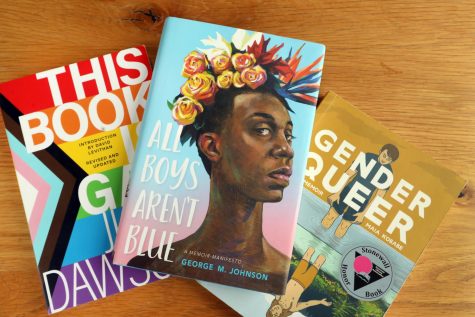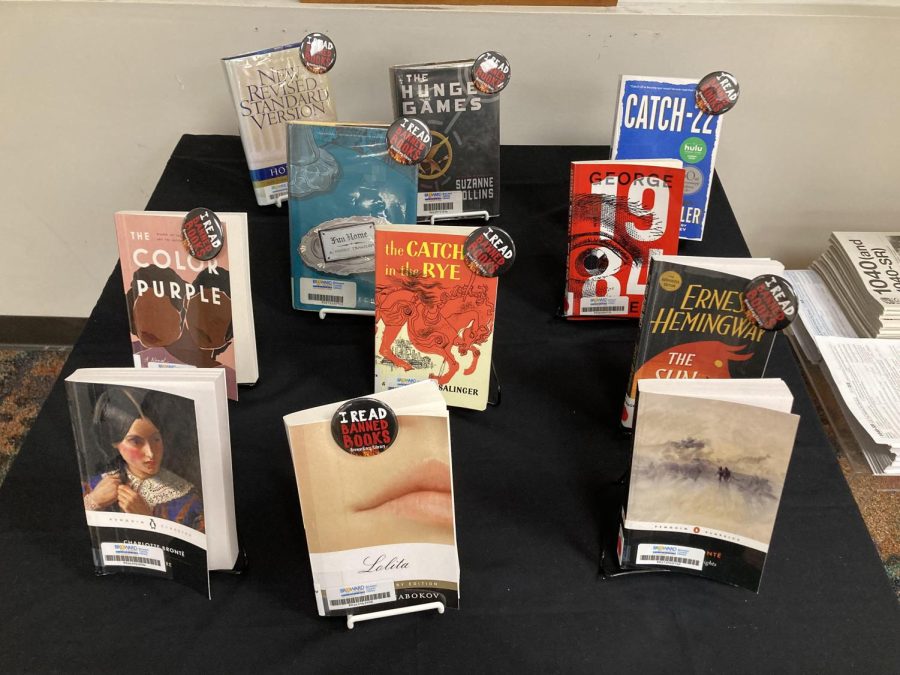Have you ever read the novel Fahrenheit 451?
The novel, written by Ray Bradbury and published on October 19 of 1959, narrated the story of a dystopian American society where books are deemed criminal, and firemen are forced to burn them. The story follows a government that hopes for bliss through mass ignorance, leading towards eradication of logic, individuality, and critical thinking skills.
Do you remember the first amendment? That one, key part of the constitution that protects our voice, and prevents the government from violating individuality in the form of speech, press, assembly and petition?
Good.
Recently, we’ve witnessed and lived through a global pandemic, the passing of Queen Elizabeth II, Russia’s invasion of Ukraine, the 2020 election following the January 6 Insurrection, the Black Lives Matter protests caused by the death of George Floyd, and endless other tragedies that are sure to make it to our history books in later years. Although, recent events in regard to censorship might just prevent them from making it into future classrooms.
School districts throughout the United States have deemed some of the books that we technically grew up with to be inappropriate. Meanwhile, these propositions alone are more terrifying and raw than what they aspire to censor for the supposed sake of young minds.
Sadly, book banning is nothing new, but it has become more severe in the last few decades. The first book to be banned in America was prior to our independence from Great Britain in 1637. The book, New English Canaan, written by Thomas Morton, was banned by the Puritan government of the time because it was considered a harsh critique of their customs.
Around the Jim Crow-era, harmless books such as The Rabbits’ Wedding, who wrote this book in 1954, were banned because one rabbit was black and the other was white, which let author Garth Williams to be accused of promoting interracial relationships which were taboo at the time.
Despite the fresh wounds left behind by World War II, books like Maus by Art Spiegelman and even The Diary of a Young Girl by Anne Frank have been subject to censorship. Like many other novels of different genres, the supposed main concern is the use of language and “obscene” content.

According to the American Library Association (ALA), “A record 2,571 unique titles were targeted for censorship, a 38% increase from the 1,858 unique titles targeted for censorship in 2021. Of those titles, the vast majority were written by or about members of the LGBTQIA+ community and people of color.” Book banning directly goes against freedom of speech, offends the intelligence of teenagers and young adults, setting our future into jeopardy. Taking these facts and numbers into consideration is much scarier to think about. As we have witnessed time and time again, history repeats itself. The only way to forge a better future for all is through the development of good morals, and most importantly, continuously learning from the past, and from each other. History books present a series of events told only in one perspective, lacking the colors and true voices of those who actually lived through these events.
What’s history without survivors? A myth or a legend; takes humanity out of our history.
If we have no alternative, we can always attempt to show “The Lion King” in schools as a replacement of Shakespeare’s Hamlet, and might even get away with sneaking “Easy A” into classrooms as a replacement for The Scarlet Letter and Mark Twain’s Adventures of Huckleberry Finn—too much?
Recently, Lindsay Durtschi, a mother and member of the P.T.A in Escambia County, took part in the lawsuit against the Escambia County School District and Escambia County school against censorship, accusing these new attempts of invalidating. According to The New York Times, “The suit seeks to have Escambia’s book restrictions declared unconstitutional for targeting specific viewpoints and for infringing on the rights of students to receive information.” Again, this offends the intellectual ability of children and does not allow room for individualism by, technically, deleting parts of our history and silencing the voices of those who lived it.
To top it all up, The Washington Post reports that school librarians can face severe penalties for providing books deemed inappropriate for children, which could result in years of imprisonment and fines up to $10,000.
We are living in a time where it seems that, as a society, we are stepping dangerously backwards without looking ahead, limiting the amount of information and leaving no room for teenagers and children to learn and broaden their knowledge beyond what the district deems appropriate for them to know. Continuing to support or ignoring these censorship laws endangers the future of our society. The children that these laws argue to protect and are continuously cuddle rotten, will one day become adults, with a responsibility of making decisions over their own future and that of others by voting in general elections.
As written in the 1993 dystopian novel, The Giver, by Lois Lowry, “If everything’s the same, then there aren’t any choices!”
And if everything is the same, if we all think the same because of limited knowledge and a big gap in our understanding and comprehension of history, we really are doomed.


